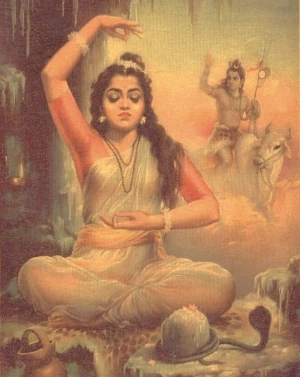Culture vis-a-vis Agriculture
In our cultural heritage lies a profound wisdom, akin to the meticulous process of agriculture. Just as farmers tend to their fields with care and diligence, nurturing crops to fruition, so too must we tend to our character and values to foster personal growth.
Clearing the Field: Removing Negative Qualities
Much like preparing a field for planting, the journey of self-improvement begins with clearing away weeds and unwanted materials. In the realm of character development, this entails identifying and addressing negative traits such as anger, greed, and jealousy. These qualities act as obstacles to our growth, hindering our journey towards becoming better individuals.
Sowing Seeds of Virtue: Cultivating Positive Qualities
Once the field is cleared, it's time to sow the seeds of virtue. Just as farmers carefully plant crops, we must consciously cultivate positive qualities within ourselves. Honesty, kindness, courage, and patience are seeds that, when nurtured, blossom into virtues that enrich our lives and the lives of those around us.
Nourishing Growth: Practicing and Reinforcing Goodness
Merely planting seeds is not enough; we must also water and nourish them for growth. Similarly, cultivating positive qualities requires consistent practice and reinforcement. Through daily actions and choices, we nourish the virtues we wish to embody, ensuring they take root and flourish within us.
The Wisdom of Vedic Teachings
Ancient scriptures, such as the Vedas, impart timeless wisdom on the cultivation of character. The Vedic prayer, "विश्वानि देव सवितर्दुरितानि परा सुव । यद्भ्द्रं तन्म आ सुव ॥" invokes divine guidance in our quest to overcome negativity and embrace auspiciousness. It emphasizes the importance of continuous effort and divine intervention in our journey towards personal growth.
Reflection and Divine Guidance
Self-reflection plays a crucial role in this journey. We must introspect, identifying our shortcomings, and actively work to weed them out. Additionally, seeking divine guidance through prayer and meditation can provide the spiritual nourishment needed to navigate the complexities of self-improvement.
Learnings
- Personal growth is akin to the process of agriculture, requiring diligence and continuous effort.
- Clearing negative qualities, cultivating positive virtues, and nurturing their growth are essential steps in character development.
- Self-reflection and divine guidance are invaluable tools on the journey towards personal transformation.
How to Conduct Yourself Based on These Learnings
- Self-Awareness: Regularly reflect on your thoughts, actions, and behaviors to identify areas for improvement.
- Consistent Effort: Dedicate yourself to the continual cultivation of positive qualities, actively practicing virtues like honesty, kindness, and patience.
- Seek Guidance: Embrace the wisdom of ancient teachings and seek divine guidance through prayer and meditation to navigate challenges and obstacles on your journey of self-improvement.
Recommended for you
Bharani Nakshatra Features

Everything you need to know about Bharani Nakshatra - characteristics, health issues, suitable gemstone.......
Click here to know more..Those living in Kaliyuga have got a special boon
 Click here to know more..
Click here to know more..
Kamakshi Dandakam

mayaa yatkri'tam te prayachchhaatra saukhyam paratraapi nityam vidhehyanghripadme dri'd'haam bhaktimaaraat namaste shive dehi me mangalam paahi kaamaa....
Click here to know more..
English Topics
Vedas
Click on any topic to open
- 86 Wealth in the Vedic Society
- 85 Culture vis-a-vis Agriculture
- 84 Whenever I have Read any Part of the Vedas
- 83 Vedas - Holy Books Of Hinduism
- 82 How The Vedas Manifested Into Material Objects
- 81 What does Rigveda contain?
- 80 Why Vedas are called Shruti?
- 79 What Vedas say about periods
- 78 How Vedas Came Into Existence
- 77 Vedas are eternal, not written by anyone
Please wait while the audio list loads..
30
Ganapathy
Shiva
Hanuman
Devi
Vishnu Sahasranama
Mahabharatam
Practical Wisdom
Yoga Vasishta
Vedas
Rituals
Rare Topics
Devi Mahatmyam
Glory of Venkatesha
Shani Mahatmya
Story of Sri Yantra
Rudram Explained
Atharva Sheersha
Sri Suktam
Kathopanishad
Ramayana
Mystique
Mantra Shastra
Bharat Matha
Bhagavatam
Astrology
Temples
Spiritual books
Purana Stories
Festivals
Sages and Saints
